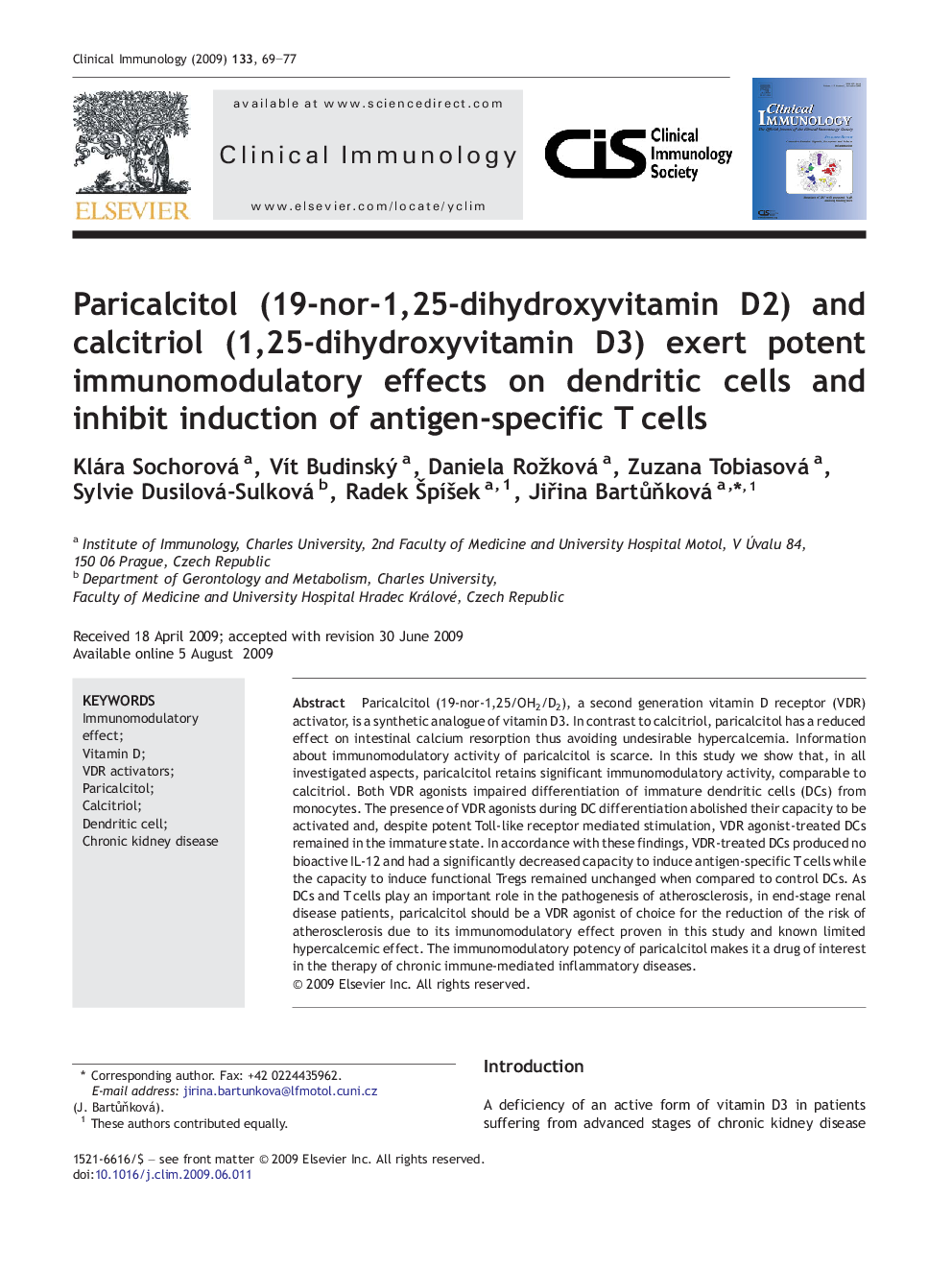| Article ID | Journal | Published Year | Pages | File Type |
|---|---|---|---|---|
| 3257894 | Clinical Immunology | 2009 | 9 Pages |
Paricalcitol (19-nor-1,25/OH2/D2), a second generation vitamin D receptor (VDR) activator, is a synthetic analogue of vitamin D3. In contrast to calcitriol, paricalcitol has a reduced effect on intestinal calcium resorption thus avoiding undesirable hypercalcemia. Information about immunomodulatory activity of paricalcitol is scarce. In this study we show that, in all investigated aspects, paricalcitol retains significant immunomodulatory activity, comparable to calcitriol. Both VDR agonists impaired differentiation of immature dendritic cells (DCs) from monocytes. The presence of VDR agonists during DC differentiation abolished their capacity to be activated and, despite potent Toll-like receptor mediated stimulation, VDR agonist-treated DCs remained in the immature state. In accordance with these findings, VDR-treated DCs produced no bioactive IL-12 and had a significantly decreased capacity to induce antigen-specific T cells while the capacity to induce functional Tregs remained unchanged when compared to control DCs. As DCs and T cells play an important role in the pathogenesis of atherosclerosis, in end-stage renal disease patients, paricalcitol should be a VDR agonist of choice for the reduction of the risk of atherosclerosis due to its immunomodulatory effect proven in this study and known limited hypercalcemic effect. The immunomodulatory potency of paricalcitol makes it a drug of interest in the therapy of chronic immune-mediated inflammatory diseases.
